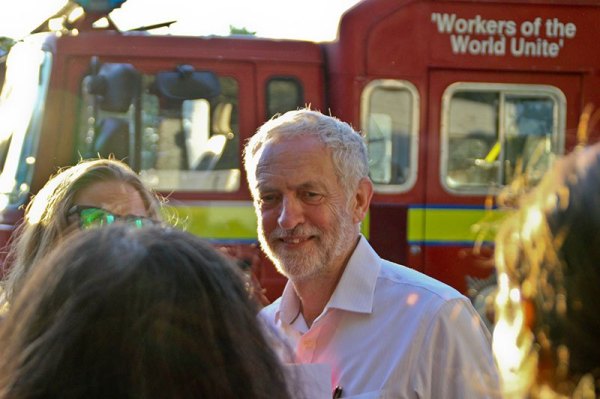
This week saw the publication of the Transport Select Committee’s (TSC) report into rail franchising. The reaction in the mainstream media was to pick up on both the TSC’s criticisms of the Department for Transport’s (DfT) handling of the Thameslink, Southern and Great Northern (TSGN) superfranchise, and its overall conclusion that franchising is ‘no longer fit for purpose’.
Both statements speak to a popular anger at the state of passenger provision, not least because of the omnicrisis playing itself out on Southern. But in this blog post, I wish to drill down a bit into the report. In doing so, I will show that as well as bringing to light some further detail on the appalling state of franchising, the approach of the TSC and its findings will simply serve to perpetuate a broken system that fails passengers and taxpayers. As such this report, as with so many other reports of its kind in recent years, should be considered more as part of the problem, rather than a stepping stone towards a solution.
The main problems that the TSC find with the franchising system, and their solutions to these, are:
- There is insufficient competition both between franchised operators, and for franchise bidding competitions and this discourages train operating companies (TOCs) from taking risks and innovating beyond the scope of their contracts. Therefore, smaller franchises should be considered, or open access operators (OAOs) – private operators with no public service remit – should be allowed to step in when franchised operators fail their obligations.
- Open access, where allowed to flourish, has been a ‘success’, although it is acknowledged that OAOs do not bear many of the costs and responsibilities of franchised TOCs.
- The DfT should consider longer contract terms for franchises that have performed better historically, which would allow greater investment from TOCs.
- The misalignment between the ‘control periods’ set for the funding of Network Rail and passenger franchising contracts is a ‘fundamental flaw’ of the system, although no solutions are suggested.
- Despite the West Coast franchising debacle, and consequent reviews, the DfT is still understaffed and incapable of effectively managing the franchising programme. It is recommended that the Office of Rail and Road (the regulator) takes on much of the responsibility for the franchising programme.
- With regards to Southern, the TSC warns that the kind of ‘management contract’ used on the TSGN franchise should not be repeated, because it leaves very little risk with the operator. If found to be at fault, through current investigations, the government should consider who best to run the franchise, other than the current TOC, Govia Thameslink Railway.
The TSC have indeed highlighted some of the problems facing franchising, many of which are already known, having been previously discussed on numerous occasions by many official reports. The question is whether the report has identified all of franchising’s problems, and the most important ones, and whether their recommendations would actually improve the situation.
The most serious problem with the report is that it fails to address Christian Wolmar’s perennial question, ‘what is franchising for’. In other words, if it is not fit for purpose, then what is its purpose? It does acknowledge that franchising, when legislated for the in 1993 Railways Act, was intended to generate competition between private operators, which would then drive efficiency gains and improved services. It then goes on to suggest ways in which OAOs could gain more of a foothold in markets, given that most franchised operators face little competition from other railway companies for given passenger flows.
But the TSC fail to ask why it is that in 20 years of franchising, the nirvana of competition has never been achieved within the industry, despite endless reports, tinkering and, of course, generous state subsidies to get things moving along. As such, the TSC accepts the tired and broken ideological framing that first accompanied privatisation and has directed the policy of governments of all political stripes ever since. This argues that, whatever the difficulties in creating competition within a network that has limited capacity, where the interconnection of services and ticketing is important to maintaining the ‘network benefits’ of passenger rail travel, and which still relies on massive public subsidy, policy solutions can always be found in order to unleash market forces. In this sense the report, however well intentioned, will mainly serve as a device to further perpetuate the failures of privatisation, to the benefit of private shareholders and providers of finance.
This explains the TSC’s enthusiasm for growing open access, as championed by the Thatcherite think tank, the Centre for Policy Studies (who were one of the witnesses to the inquiry), and others. The TSC fail to recognise that the problems that they identify with open access – that OAOs pay only a proportion of the costs of using the track that franchised TOCs do, and that it creates capacity and timetabling problems – are the very features of open access that make it an attractive investment, because it socialises losses and privatises gains even more so than the currently dominant franchising regime. It also explains why the TSC can provide no solutions to the misalignment of planning periods between Network Rail and the TOCs, because such a separation between the management or track and train has been key to ensuring private investment in passenger services, since this is one of the arrangements that shields TOCs from much of the costs of infrastructure provision.
At best, the report can be used to politically attack the DfT’s handling of the Southern crisis. Indeed, it has already been seized upon by the RMT union. However, even in this limited context, it fails to investigate the roll out of driver only operation across franchises, starting with Southern, and the likely negative effects of it on access to the network by disabled passengers and other groups, a consideration of which forms part of an application for judicial review by the Association of British Commuters. Despite the headlines, the report packs little punch, and that’s because the authors seem incapable of moving beyond trying to innovate ways to patch up a system whose only real success has been to help widen further the rapidly expanding canyon between rich and poor in Britain, and perpetuate the dominance of the private motor car where such a choice in transport mode exists.



